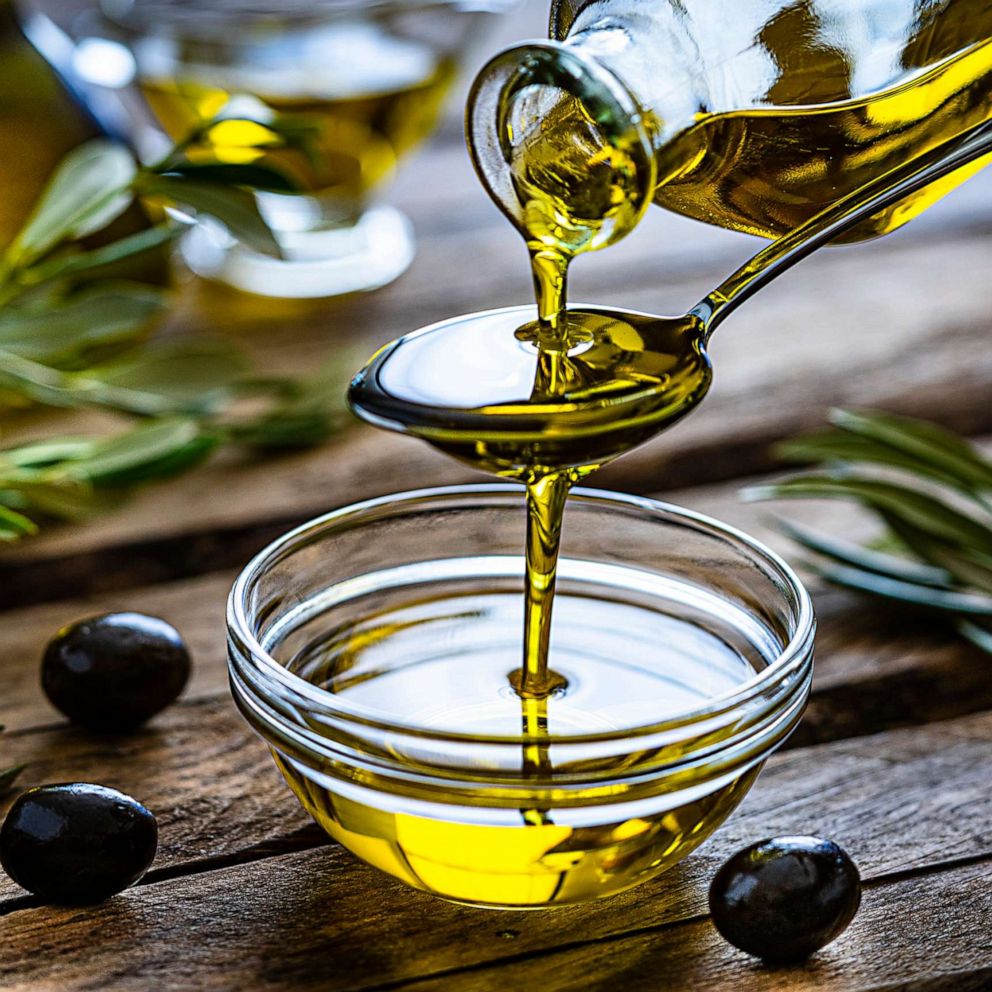How olive oil could lower risk of dementia mortality
A new study looked at health associations with more olive oil consumption.
From vegetables and legumes to fish and fresh herbs, Mediterranean ingredients provide a wide array of health benefits, and the Mediterranean diet is consistently ranked the top overall diet.
Now, researchers have found new health associations between consuming more than 1/2 teaspoon of olive oil a day and lower risk of dementia-related death.
According to a new study published Monday in the journal JAMA Network Open, researchers from Harvard School of Public Health followed the dietary decisions of 92,383 health care professionals over 28 years and found that those who incorporated more olive oil of any kind into their diet lowered their probability of dying from dementia.

The risk of disease-related death was also lowered when participants replaced 1/4 teaspoon of mayonnaise or a teaspoon of margarine with olive oil, and after other lifestyle factors were accounted for, such as eliminating smoking.
Researchers found that consumption of more olive oil, at least 7 grams per day, was associated with a 28% lower risk of dementia-related death.

The American Heart Association has said that consuming virgin olive oil, in particular, may help the body "remove excess cholesterol from arteries and keep blood vessels open."
When looking at substitutions, the research showed swapping 5 grams per day of margarine and mayonnaise with olive oil lowered the risk of dementia-related death by 8% and 14%, respectively. Other vegetable oil substitutes did not show a significant reduction in this risk.

Registered dietitian and nutritionist Maya Feller told "Good Morning America" that all olive oil is not created equal.
"Cold pressed olives makes extra virgin olive oil, that is what you need to look for," she said, adding that it should be 100% olive oil to ensure you're getting the polyphenols and unsaturated fatty acids.
"Look for opaque products that are stored away from light or heat in the store, because it helps it not to go rancid," Feller continued. "You also want to make sure it is single source."
The study population did not have heart disease at the beginning of the study, so the results may not reflect groups who could be at the highest risk for dementia and dementia-related death.
Because this was an observational study, it does not show direct cause and effect, and the self-reported participant questionnaires provided to researchers may not reflect the actual dietary patterns of the population in question.
Feller said she uses olive oil in place of butter for baked goods at breakfast like pancakes or muffins, "use it on anything and everything liberally -- sky's the limit."







